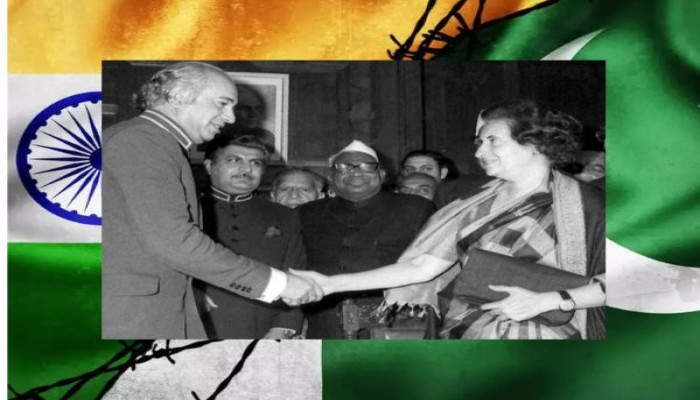Pakistan suspends 1972 Simla Agreement amidst growing tensions
- In Reports
- 08:03 PM, Apr 24, 2025
- Myind Staff
Pakistan announced on Thursday the suspension of the 1972 Simla Agreement, a peace treaty with India that was signed by both countries in the aftermath of the Indo-Pakistani war of 1971. This has given rise to strong tensions between the two nuclear-armed neighbours and potential border dispute in the Line of Control (LoC).
Signed at Shimla, Himachal Pradesh, on July 2, 1972, the treaty was a hope for restoring peace after the war that led to the birth of Bangladesh. However, its suspension now puts very serious questions on what holds for the future of both nations as well as regional stability.
The Simla Agreement.
In brief, the Simla Agreement aimed at restoring normal relations between India and Pakistan, after the war in East Pakistan, resulting in the independent state of Bangladesh. The Indian Army's intervention in 1971 had shaped the final outcome of the war, forcing Pakistan into signing a peace treaty with India.
Both sides agreed to resolve unsettled problems through peaceful means including bilateral relations. It ruled out the possibility for third-party intervention, a position maintained by India all along, especially on issues related to Kashmir.
A major outcome of the Simla Agreement was the establishment of the ceasefire line to Line of Control (LoC). Both sides agreed that it would not be altered unilaterally by either of the countries even if they have different interpretations of it.
This also included India giving back over 13,000 km² of land it took over during the war. However, India retained a few strategic areas, such as Turtuk, Dhothang, Tyakshi, and Chalunka in the Chorbat Valley, which amounted to over 883 km².
Another significant outcome was that it led the way for the official recognition of Bangladesh by Pakistan, which took place soon after the signing of the treaty.
Long-Term Effects
The Simla Agreement did not reduce tensions between the countries, although it had great expectations attached to it. Conflicts such as the Siachen Glacier operation, which Pakistan considered a violation because of the undefined frontiers in that area, raised tensions over decades.
The Kargil War of 1999 and such conflicts, together with the Siachen situation, have destroyed the progress as both countries maintain a military presence under dangerous climatic conditions, often losing lives due to avalanches and other disasters.







Comments